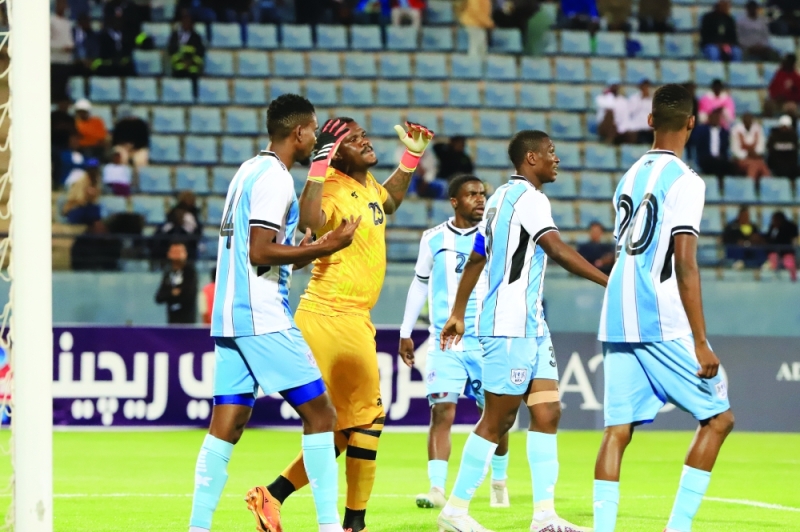New era beckons for sports
Kabo Ramasia | Monday November 11, 2024 14:45


As the nation gathered at the National Stadium this morning at 6am, it was all jubilations as Batswana welcomed their newly inaugurated President, Advocate Duma Boko, which many hope will bring change they long for. However, in their crosshairs will be a restoration of the economy that those from the sport sector want to be a part of.
According to the University of Kentucky-based sport expert, Professor Tshepang Tshube, the new government should create long-term solutions to the problems that face Botswana sport. Tshube stated school sports is a policy, administrative as well as political issue which requires a legislative solution. He said government should reflect on the role school sports used to play in yesteryears before the Act was changed.
“The government should understand that sports and physical activity are drivers of education and child development,” he said.
He stressed that the new government should address this issue at the legislative level.
Additionally, he stated that to commercialise sports, the government must be mindful of the duplication of roles between the Botswana National Sport Commission (BNSC) and the Botswana National Olympic Committee (BNOC).
“What Botswana needs to do is to merge the BNSC and the BNOC (but); if they don’t merge the two, they need to give the BNOC the mandate for elite sport development whilst the BNSC should deal with recreational sport, Sunday soccer, marathons, and nothing competitive outside Botswana.” He stressed that this should be addressed at the Act level. Furthermore, the sport scientist suggested that the minister should not appoint the BNSC or the BNOC board members and that it should be through elections. He expressed worry that the duplication of the two entity’s roles has been ongoing for close to 30 years now.
Tshube said another component is that sport organisations and institutions should rely on expertise to hire in sport administration. He cautioned that having previously played sport is not sufficient for someone to hold key positions within the sector. To this end, he advised that people should be hired based on academic qualifications and leadership experience because it undermines the growth and development of sport just to go for former players without qualifications. He argued that there should be a minimum academic requirement. Seasoned sport administrator and athletics coach, Justice Dipeba, said they look forward to seeing the changes that will be made. He shared similar sentiments that the most important thing is school sports or talent identification. However, he argued that at the moment the country does not have structures for talent identification since school sport was stopped.
Dipeba said restoring school sport will entail empowering teachers who coach. He outlined that in the past, teachers who volunteered were not trained coaches and therefore the new government will have to rectify such. He added that facilities have to be upgraded and more money needs to be put into sports as the power of sports was evident in the Paris 2024 Olympics. Buttressing the need for facilities, he said, high-performance facilities and personnel on the ground will attract athletes to come train in Botswana.
In his view, the government will have to look into luring the private sector to invest in the growth of sport. He said this happens in other countries where tax reliefs are granted to such private corporations.
Former Minister of Youth, Gender, Sport and Culture, Tumiso Rakgare, previously told Parliament that sport only contributed 2.1 percent to the Gross Domestic Product and employed under 2, 000 people.
Botswana has 480 professional athletes, with an average earnings of P3, 000. At the time, 16 athletes were based abroad. It remains to be seen if the new administration will instigate any reform toward the sector.
Globally, sport accounts for billions. According to the Sports Global Market Report, the global sports market size is anticipated to be $629.81 billion by 2028.
